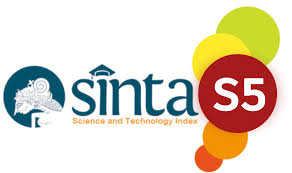Efficient market theory on trial: The case of PT Semen Indonesia
DOI:
https://doi.org/10.54957/jolas.v5i1.844Kata Kunci:
Cement, Efficient-Market, PriceAbstrak
This study seeks to investigate the dynamics within PT Semen Indonesia (Persero) Tbk, particularly examining the paradox of its share price decline during a period of favorable operational and financial performance from November 2022 to May 2023. Employing both interviews with high-level executives and extensive literature review, the research adopts a mixed-method approach. Interview data were meticulously analyzed using clustered coding to draw nuanced insights, while the literature review served to contextualize and bolster the analysis of the empirical data. The findings indicate that despite the robust operational and financial health of PT Semen Indonesia during the specified period, the company experienced a concomitant decline in its stock value, challenging the assumptions of the Efficient Market Theory. The disparity between the company’s performance metrics and its stock price behavior suggests a weak application or potential invalidity of the Efficient Market Theory in this instance. This research not only underscores the complexities of stock price determinations within Indonesian state-owned enterprises but also opens avenues for future studies to explore similar phenomena across different firms or industries. The unique insights gained from high-level sources within the company provide a valuable foundation for further scholarly inquiry into market efficiency theories.Referensi
Ang, A., Goetzmann, W. N., & Schaefer, S. M. (2011a). The efficient market theory and evidence: Implications for active investment management. Foundations and Trends in Finance, 5(3), 157–242. https://doi.org/10.1561/0500000034
Antono, Z. M., Jaharadak, A. A., & Khatibi, A. A. (2019). Analysis of factors affecting stock prices in mining sector: Evidence from Indonesia Stock Exchange. Management Science Letters. https://api.semanticscholar.org/CorpusID:191911223
Aroni, J. (2011). FACTORS INFLUENCING STOCK PRICES FOR FIRMS LISTED IN THE NAIROBI STOCK EXCHANGE. https://api.semanticscholar.org/CorpusID:145815076
Bahtiar, M., & Qadri, R. A. (2024). The Voluntary Disclosure Dilemma: Unraveling the Compliance-Evasion Causality in Tax Administration. Educoretax, 4(2), 249–262. https://doi.org/10.54957/educoretax.v4i2.734
Biggerstaff, L., Cicero, D. C., & Wintoki, M. B. (2020). Insider Trading Patterns. Corporate Governance: Internal Governance. https://api.semanticscholar.org/CorpusID:11930121
Budiono, S., Purba, J. T., Adirinekso, G. P., & rajagukguk, W. (2021). Market Growth Strategy through Consumers’ Satisfaction, Product Quality and Brand Image: Evidence from Jakarta Indonesia. International Conference on Industrial Engineering and Operations Management.
Caporale, G. M., Gil-Alana, L., & Plastun, A. (2019). Long-term price overreactions: are markets inefficient? Journal of Economics and Finance, 43(4), 657–680. https://doi.org/10.1007/s12197-018-9464-8
Crotty, J. R. (2011). The Realism of Assumptions Does Matter: Why Keynes-Minsky Theory Must Replace Efficient Market Theory as the Guide to Financial Regulation Policy.
Daariy, A., Djamaluddin, S., & Sumarto, A. H. (2023). Macroeconomic Factors and Stock Returns: An Approach of Arbitrage Pricing Theory in the Food and Beverage Industry. JOURNAL OF ECONOMICS, FINANCE AND MANAGEMENT STUDIES. https://api.semanticscholar.org/CorpusID:256445921
Davidson, R. H., & Pirinsky, C. A. (2021). The Deterrent Effect of Insider Trading Enforcement Actions. The Accounting Review. https://api.semanticscholar.org/CorpusID:236554175
Deka, P., Barman, M. P., & Bora, J. (2020). Statistical Investigation of Factors Influencing Share Price Movements of National Stock Exchange Listed Companies in India. https://api.semanticscholar.org/CorpusID:225458873
Devia, D., Lestari, P., Sembiring, E., & Studi Teknik Lingkungan, P. (2017). LIFE CYCLE ASSESSMENT (LCA) PRODUK SEMEN PORTLAND KOMPOSIT (STUDI KASUS: PT X) LIFE CYCLE ASSESSMENT OF PORTLAND CEMENT COMPOSITE (CASE STUDY: PT X). In Jurnal Teknik Lingkungan (Vol. 23).
Godfrey, J., Hodgson, A., Tarca, A., Hamilton, J., & Holmes, S. (2010). Accounting Theory. Wiley & Sons.
Gupta, Ca. H. K., & Arora, M. K. (2019). Factors Influencing Stock Price of Manufacturing Sector: An Empirical Analysis of NSE listed Companies. https://api.semanticscholar.org/CorpusID:213698070
Harinurdin, E. (2022). The Effects Of Financial performance and Institutional Ownership On The Stock Price of Mining Company In Indonesia Stock Exchange (IDX) Year 2016-2020. Jurnal Keuangan Dan Perbankan (KEBAN). https://api.semanticscholar.org/CorpusID:255565080
Hull, M., & McGroarty, F. (2014). Do emerging markets become more efficient as they develop? Long memory persistence in equity indices. Emerging Markets Review, 18, 45–61. https://doi.org/10.1016/j.ememar.2013.11.001
Hwang, S. J. (2022). ESG Performance of a Company and Stock Price Synchronicity. Korean Association Of Computers And Accounting. https://api.semanticscholar.org/CorpusID:259743398
Jovanovic, F. , A. S. , & S. C. (2016). Efficient Market Hypothesis and Fraud on the Market Theory A New Perspective for Class Actions. LSN: Securities Law: International (Topic).
Khoa, B. T., & Huynh, T. T. (2021). Is It Possible to Earn Abnormal Return in an Inefficient Market? An Approach Based on Machine Learning in Stock Trading. Computational Intelligence and Neuroscience, 2021. https://doi.org/10.1155/2021/2917577
Kiky, A., Tinggi, S., & Wiyatamandala, I. E. (2018). Kajian Empiris Teori Pasar Efisien (Efficient Market Hypothesis) pada Bursa Efek Indonesia. Maret, 6(2), 138–156.
Kukreti, V., Bhatt, C., & Dani, R. (2023). A Stock Market Trends Analysis of Reliance using Machine Learning Techniques. 2023 6th International Conference on Information Systems and Computer Networks (ISCON), 1–6. https://api.semanticscholar.org/CorpusID:258510648
Mahajan, G. (2019). Interview with Michael J. Lanning on Value Proposition (& Value Delivery). Journal of Creating Value, 5, 237 - 241.
Margotta, & Donald. (2015). Halliburton and Efficient Market Theory. Northeastern U. D’Amore-McKim School of Business Research Paper No. 2650606.
MariaYessyChristy, B. (2016). Pengaruh Kinerja Keuangan Terhadap Price To Book Value (Pbv) pada Perusahaan Ritel yang Terdaftar di Bursa Efek Indonesia Periode Tahun 2010-2014. https://api.semanticscholar.org/CorpusID:167953002
McMillan, D. G., Elgammal, M. M., & Ahmed, F. (2020). The information content of US stock market factors. Studies in Economics and Finance. https://api.semanticscholar.org/CorpusID:216386238
Prastuti, D., & Setianingrum, P. H. (2019). Company Performance and Macroeconomics Variables Influence on Stock Price. Proceedings of the 5th Annual International Conference on Management Research (AICMaR 2018). https://api.semanticscholar.org/CorpusID:159104641
Prastyawan, T. B., Qadri, R. A., & Asqolani. (2022). Unboxing “ICBP” Business During Pandemic: Has Price Reflected Accounting Information? Jurnal Riset Akuntansi Dan Bisnis Airlangga, 7(1), 1171–1194. https://doi.org/10.20473/jraba.v7i1.36184
Rachman, R. R., Sudjono, & Saluy, A. B. (2020). The Effect of Macro Economy and Financial Performance on Stock Price With Earning Per Share As The Intervening Variable (A Study on Retail Trading Company in IDX in 2011-2018). https://api.semanticscholar.org/CorpusID:234703374
Ramdany, A., & Manurung, T. M. S. (2022). The Effect Of Financial Performance On Pt Indofood Sukses Makmur, Tbk’s Stock Price On The Indonesia Stock Exchange (Period Of 2016 – 2020). Jurnal Ilmiah Manajemen Kesatuan. https://api.semanticscholar.org/CorpusID:254176552
Rizqo, M., & Qadri, R. A. (2024). The Interplay Between ESG Disclosure And Financial Profitability. JOURNAL OF APPLIED MANAGERIAL ACCOUNTING, 8(1), 28–46. https://doi.org/10.30871/jama.v8i1.7239
Salim, M. N., & Prasetia, A. (2022). Determinants of Company Value (PBV) And Their Impact on Share Returns: A Case Study of Stock Price Index in Mining Companies Listed on the Indonesia Stock Exchange (IDX) 2017–2020. European Journal of Business and Management Research. https://api.semanticscholar.org/CorpusID:254970320
Saputro, D., & Qadri, R. A. (2024). Optimizing Hajj Fund Investments Through Valuation Analysis Of Sharia-Compliant Stocks. Journal of Law, Administration, and Social Science, 4(2), 200–220. https://doi.org/10.54957/jolas.v4i2.758
Saunders, M., Lewis, P., & Thornhill, A. (2019). Research Methods for Business Students. (8 ed). Pearson.
Sixpence, A., Adeyeye, O. P., & rajaram, Rajendra. (2020). Impact of relative and absolute financial risks on share prices: a Zimbabwe Stock Exchange perspective. Investment Management and Financial Innovations. https://api.semanticscholar.org/CorpusID:211569447
Stein, J. C. (1989). Efficient Capital Markets, Inefficient Firms: A Model of Myopic Corporate Behavior. The Quarterly Journal of Economics, 104(4). http://qje.oxfordjournals.org/
Steinberg, M. I. (2021). Insider Trading. Rethinking Securities Law. https://api.semanticscholar.org/CorpusID:242580707
Sukesti, F., Ghozali, I., Fuad, F., Almasyhari, A. K., & Nurcahyono, N. (2021). Factors Affecting the Stock Price: The Role of Firm Performance. Journal of Asian Finance, Economics and Business, 8, 165–173. https://api.semanticscholar.org/CorpusID:233454435
Urquhart, A., & McGroarty, F. (2016a). Are stock markets really efficient? Evidence of the adaptive market hypothesis. International Review of Financial Analysis, 47, 39–49. https://doi.org/10.1016/j.irfa.2016.06.011
Urquhart, A., & McGroarty, F. (2016b). Are stock markets really efficient? Evidence of the adaptive market hypothesis. International Review of Financial Analysis, 47, 39–49. https://doi.org/10.1016/j.irfa.2016.06.011
Wahal, S. (1997). Entry, Exit, Market Makers, and the Bid-Ask Spread. Review of Financial Studies, 10, 871–901. https://api.semanticscholar.org/CorpusID:154990331
Woolley, P., & Fellow, S. (2014). The Fallibility of the Efficient Market Theory: A New Paradigm.
Xiong, W., & Cont, R. (2021). Interactions of market making algorithms: a study on perceived collusion. Proceedings of the Second ACM International Conference on AI in Finance. https://api.semanticscholar.org/CorpusID:248516700
Unduhan
Diterbitkan
Cara Mengutip
Terbitan
Bagian
Lisensi
Hak Cipta (c) 2025 Raja Pranatha Doloksaribu, Arum Puspita Maharani, Resi Ariyasa Qadri

Artikel ini berlisensi Creative Commons Attribution 4.0 International License.











